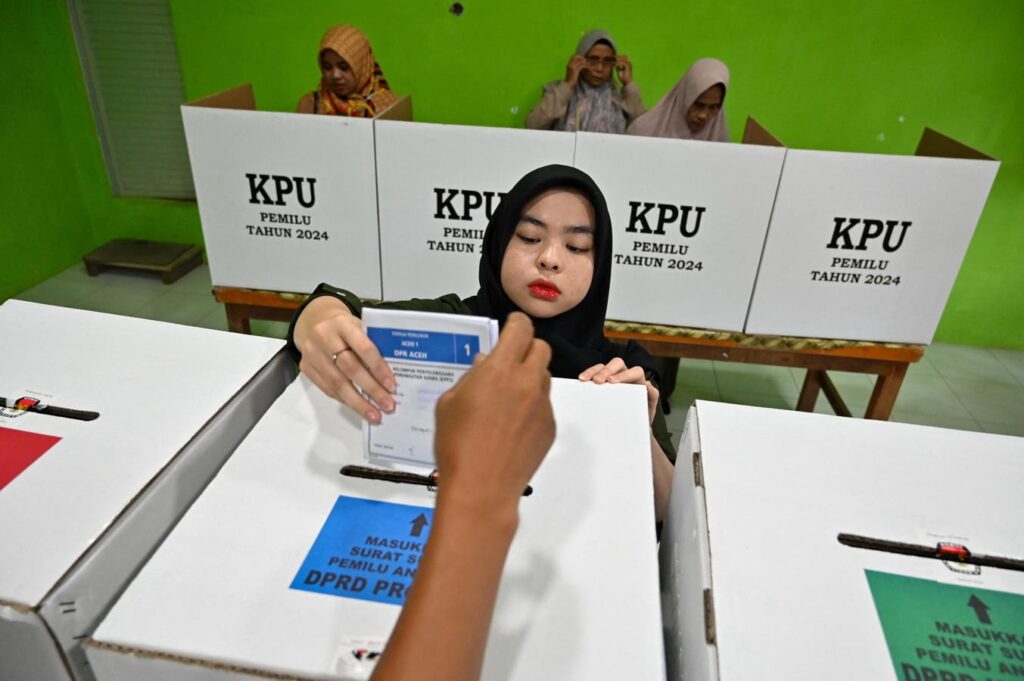Social movements in Indonesia used technology to inform and engage young voters in recent national elections.
In Indonesia's 2024 elections, there were 107 million voters, more than half of whom were under 40, but only 8% identified themselves as politically engaged.
Andita Farsely Utami, a former environmental economist and founder and CEO of the NGO Think Policy, says her team Bijak Memiri or “Vote wisely.”“, As an experiment in political education, providing clear and relevant information so that voters can make informed choices.
Erika Chenoweth, a public policy professor at Harvard University, has written about the idea that it takes 3.5 percent of a country's population to drive political change.
“This is caused by a lack of reliable, accessible political information and the missing link between issues-based political processes. We believe that in fostering a healthy democracy, accessible information “I realized the importance of intergenerational cooperation,” Utami said.
Utami said the project's youth team thought through the types of information voters want to know about elections and choosing leaders, read social media, incorporates attention-grabbing memes and current trends, and then engages in substantive discussions. It is said that he is going there.
“We are also creating a collaborative offline forum with our community (called BMx) to reach a wider audience and enable discussions based on relevant issues in our respective regions and communities. ” she says. “Our survey revealed that 29 percent feel more optimistic about Indonesian politics,” with 41 percent of first-time voters aiming for deeper political engagement. More than 90 percent use it to gain insight about elections Bijak Memiri. ”
The team was able to capture the attention of young people, reaching 1.4 million unique website visitors between the ages of 17 and 40.
“We believe it is very important to carry out similar campaigns in other countries with elections from mid to late this year to increase understanding of electoral behavior among young people, especially in regions with high proportions of young people. “I think it's beneficial to voters,'' she said, adding: Bijak Memiri aims to continue to play a role in providing civic engagement for its viewers, including monitoring laws and public policies enacted by winning governments.
This project was also selected for the Learning for Civic Action Challenge by MIT Solve.
Domestic solutions in Indonesia
Utami grew up in Bogor, Indonesia, and says he spent most of his childhood experiencing the educational system left over from the Suharto dictatorship.
“As a teenager, I had no interest in political science or public policy, but as my education and experiences have built up, my interest and passion grew over time and I realized the importance of a functioning democracy. “I did,” she says.
Utami explains that democracies in the Global South have a variety of unique challenges.
“In Indonesia, for example, a lack of efforts towards transparency and access to meaningful information remains a fundamental challenge for the government,” she said, adding that issues such as the use of billboards in public spaces and viral information , added that there is a lot of information. There is content on social media, but little focus on the issue.
“This affects the quality of voters' decisions because they may choose someone who is well-known rather than considering someone with a track record or proposed policies.” said Utami, adding that there continued to be concerns about young people's involvement in the political process. .
“This apathy is currently prevalent among young people in India, and there is a lack of interest among young people to vote in the next election,” she says. Must be considered to find a suitable solution. ”
Women shaping the Colombian Amazon
On the other side of the world, Colombian researchers are using technology to study and highlight the impact women have had in the Amazon region since the 2016 peace deal with FARC guerrillas.
Since then, women-led social, cultural and environmental organizations have increased their presence in Colombia's Amazon region, accounting for 62% of the country's total deforestation in 2019, according to statistics from the Colombian Hydrometeorological and Environmental Institute. Occupied.
Sociologist Lorena Romero Real, current president of the Yauda de Estudios Amazonicos Foundation. and an anthropology doctoral candidate at the University of Florida, explained that she is looking more closely at the growth of indigenous and non-indigenous women's organizations in Colombia's Amazon region.
“One of the outcomes of this research was a 'geoviewer' that visualized more than 50 indigenous women's organizations in the Colombian Amazon,” she said, adding that the map showed indigenous women's organizations and groups in the Colombian Amazon. I added that there is. She was selected as part of the “Women Caregivers of the Amazon” project.
follow me twitter Or LinkedIn. check out my website.


